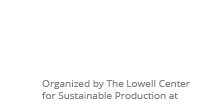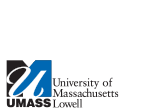2015 Symposium
MARCH 5-6, 2015
International Symposium on Alternatives Assessment
The Natcher Conference Center at the National Institute of Health
Bethesda, Maryland
About the Symposium
The field of alternatives assessment has grown significantly over the last decade because of increasing regulatory and consumer demands to substitute chemicals of concern in consumer products.
This two-day international symposium will provide a collegial forum for governmental agency staff, university researchers, industry sustainability professionals, environmental health consultants and advocates to:
- Understand gaps in knowledge and methods confronting the use of alternatives assessment.
- Identify elements of a research agenda for alternatives assessment and a process for moving it forward.
- Advance and support the growing community of practice for alternatives assessment
Symposium Planning Committee
April Bennett, National Institute of Environmental Health Sciences
Ann Blake, Environmental and Public Health Consulting
Sally Edwards, University of Massachusetts Lowell, Lowell Center for Sustainable Production
Pam Eliason, Massachusetts Toxics Use Reduction Institute
Molly Jacobs, University of Massachusetts Lowell, Lowell Center for Sustainable Production
Tim Malloy, University of California Los Angeles, Sustainable Technology Policy Program, School of Law & School of Public Health
Ray Lizotte, Schneider Electric
Mark Rossi, Clean Production Action
Alex Stone, Washington State Department of Ecology
Joel Tickner, University of Massachusetts Lowell, Lowell Center for Sustainable Production
Christopher Weis, National Institute of Environmental Health Sciences
Meg Whittaker, ToxServices
Martin Wolf, Seventh Generation
Agenda & Presentations
THURSDAY, MARCH 5, 2015
|
8:30 am - 9:00 am |
REGISTRATION |
|
9:00 am - 9:20 am |
Welcome and Opening Remarks Joel Tickner, University of Massachusetts Lowell Linda Birnbaum, National Institute of Environmental Health Sciences |
|
9:20 am - 10:00 am |
Keynote Presentation Alternatives Assessment: Promoting Preventative Action for Environmental & Occupational Health Debbie Raphael, San Francisco Department of Environment |
|
10:00 am – 10:20 am |
Group Process What are the key drivers and motivators of assessment for you? What brings you to this community of practice? |
|
10:20 am - 10:35 am |
BREAK |
|
10:35 am – 11:50 am |
Panel 1. Defining the Field of Alternatives Assessment MODERATOR: Sally Edwards, University of Massachusetts Lowell History & Architecture of Alternatives Assessment Ken Geiser, University of Massachusetts Lowell National Academies' Report, "A Framework to Guide the Selection of Safer Chemical Alternatives" Dave Dorman, North Carolina State University Creating a Data Commons for Alternatives Assessment Tom Lent, Healthy Building Network Plenary Discussion |
| 11:50 am - 12:50 pm |
NETWORKING LUNCH (Boxed lunch provided by the University of Massachusetts Lowell, Lowell Center for Sustainable Production) |
|
12:50 pm - 2:10 pm |
Panel 2. European Perspectives on Alternatives Assessment - Recent Actions MODERATOR: Lothar Lissner, Kooperationsstelle Hamburg IFE Eva Lechtenberg-Auffarth, German Federal Institute for Occupational Safety and Health Anette Albjerg Ejersted, Danish Ministry of the Environment Matti Vainio, European Chemicals Agency |
|
2:10 pm - 2:30 pm |
BREAK |
|
2:30 pm - 3:50 pm |
Panel 2. Federal Agency Viewpoints on Opportunities and Needs to Advance Alternatives Assessment MODERATOR: Joel Tickner, University of Massachusetts Lowell Jim Jones, Environmental Protection Agency David Michaels, Occupational Safety and Health Administration Linda Birnbaum, National Institute of Environmental Health Services John Howard, National Institute for Occupational Safety and Health |
|
3:50 pm - 5:15 pm |
Small Group Discussions Enhancing the Integration of Alternatives Assessment in Government Policy & Programs |
|
5:15 pm |
Adjourn |
|
6:00 pm - 7:00 pm |
RECEPTION HOSTED BY TOXSERVICES - CLYDE'S of CHEVY CHASE |
FRIDAY, MARCH 6, 2015
|
8:30 am - 8:45 am |
Welcome and Day 1 Review Joel Tickner, University of Massachusetts Lowell |
|
8:45 am - 9:00 am |
Developing a Research Agenda on Alternatives Assessment: Considerations for Day 2 Discussions Molly Jacobs, University of Massachusetts Lowell |
|
9:00 am - 10:15 am |
Panel 4. Advancing the Practice of Alternatives Assessment - Hazard Assessment & Exposure Characterization MODERATOR: Pam Eliason, Massachusetts Toxics Use Reduction Institute Hazard Assessment, Margaret Whittaker, ToxServices Exposure Assessment, Ann Blake, Environmental and Public Health Consulting Discussants: Helen Holder, Hewlett-Packard Co; Cal Baier-Anderson, Environmental Protection Agency Plenary Discussion |
| 10:15 am - 10:30 am |
BREAK |
| 10:30 am - 11:30 am |
Small Group Discussion Advancing the Practice on Hazard Assessment & Exposure Characterization |
| 11:35 am - 12:00 pm |
Small Group Report Back & Plenary Discussion MODERATOR: Pam Eliason, MA Toxics Use Reduction Institute |
| 12:00 pm - 1:15 pm |
NETWORKING LUNCH (Boxed lunch provided by the University of Massachusetts Lowell, Lowell Center for Sustainable Production) |
|
12:15 pm - 1:00 pm |
Lunch session: Organization for Economic Cooperation and Development's Substitution and Alternatives Assessment Toolbox and Tool Selector Overview & Demonstration of the SAA Toolbox Jonathan Rivin, University of Wisconsin & Emily Conner, Abt Associates |
|
1:15 pm - 2:30 pm |
Panel 5. Advancing the Practice of Alternatives Assessment - Performance and Economic Analysis, Life Cycle Thinking and Decision-Analysis MODERATOR: Alex Stone, Washington State Department of Ecology Performance and Economic Analysis, Liz Harriman, MA Toxics Use Reduction Institute Life Cycle Thinking, Topher Buck, Interstate Chemicals Clearinghouse Decision-Analysis, Tim Malloy, UCLA Sustainable Technology Policy Program Discussants: Martin Wolf, Seventh Generation; Ray Lizotte, Schneider Electric Plenary Discussion |
|
2:30 pm - 2:45 pm |
BREAK |
|
2:45 pm - 3:45 pm |
Small Group Discussion Advancing the Practice on Technical/Economic Analysis. Life Cycle Thinking & Decision-Analysis - Needs and Opportunities for Alternative Assessment |
|
3:50 pm - 4:15 pm |
Small Group Report Back & Plenary Discussion MODERATOR: Alex Stone, Washington State Department of Ecology |
|
4:15 pm - 4:45 pm |
Plenary Discussion: Supporting an Alternatives Assessment Research Agenda and Community of Practice: Where Do We Go from Here? MODERATOR: Sally Edwards, University of Massachusetts Lowell |
|
4:45 pm - 5:00 pm |
Closing Remarks and Symposium Feedback |


